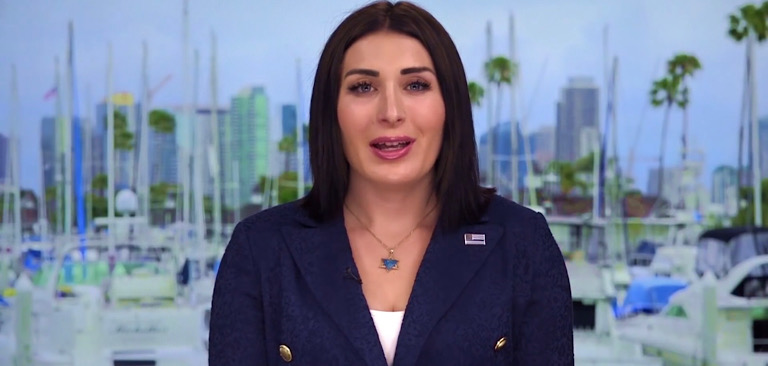Congressional candidate Laura Loomer and non-profit Freedom Watch’s lawyer Larry Klayman has submitted a petition for rehearing en banc which seeks a full court review of the dismissal of their Big Tech censorship lawsuit by the US Court of Appeals for the District of Columbia Circuit.
The lawsuit accuses Apple, Facebook, Google, and Twitter of working together to “intentionally and willfully suppress politically conservative content,” breaching the Sherman Act (an anti-monopoly law, breaching the District of Columbia’s public accommodation law (which prohibits discrimination in any place of public accommodation), and breaching the First Amendment.
It also argues that Loomer suffered “severe financial injury” as a result of being banned from these Big Tech platforms and that “each and every one” of these platforms had participated in a conspiracy to suppress Freedom Watch’s content.
The court originally ruled that the District of Columbia’s accommodation law only applies to physical spaces within the District of Columbia and dismissed the claim.
In May, Freedom Watch contested the court’s interpretation of “place of public accommodation” and argued that the court should interpret this statute more broadly.
But a three-judge panel dismissed the lawsuit and found under the District of Columbia Human Rights Act (DCHRA) that a public accommodation must operate from a “particular place.”
The petition for rehearing en banc argues that “the district court erred” by dismissing the Sherman Act claims, the DCHRA claim, and the First Amendment claims.
It states that the “numerous errors” in the panel’s treatment of the DCHRA claims are:
“An issue of exceptional importance, as people in modern society have increasingly, and almost entirely at this point, replaced the traditional physical ‘public forum’ with the internet and social media. This rings particularly true given the current state of events, with COVID-19 severely hampering the ability of individuals to physically gather.”
The petition for rehearing en banc argues that the court should “adapt and evolve with the changing times and make the ‘common sense’ ruling that the internet and social media qualifies as a ‘place of public accommodation’ under the DCHRA” and adds that “the traditional ‘place of public accommodation’ is a dying breed.”
It also cites several court rulings where websites have qualified as a place of public accommodation, including a ruling by the US District Court for the Southern District of New York in Del-Orden v. Bonobos, Inc., 2017 U.S. Dist. LEXIS 209251 (S.D.N.Y. Dec. 20, 2017) which found that a “commercial website itself qualifies as a place of ‘public accommodation.'”
On the dismissal of the Sherman Act claims, the petition for rehearing en banc argues that Apple, Facebook, Google, and Twitter “acted against their own economic self-interest in their concerted action to restrain trade” and states that “they are willing to lose revenue from conservative organizations and individuals like Freedom Watch and those similarly situated to further their leftist agenda and designs to effectively overthrow President Trump and his administration and have installed leftist government in this district and the 50 states.”
And on the dismissal of the First Amendment claims, the petition for rehearing en banc argues that the panel “failed to address the Supreme Court’s recent decision in Packingham v. North Carolina, 137 S. Ct. 1730 (2017)” where the US Supreme Court struck down a North Carolina statute that prohibited sex offenders from accessing social media websites and ruled that the statute violated the First Amendment.
The petition for rehearing also asks that Loomer and Freedom Watch’s oral arguments and notes that this request was denied by the three-judge panel.
It concludes that now is an opportunity for the court to “recognize and adapt to changing times to ensure that the law keeps up with the reality” and adds:
“This case is not just about Freedom Watch and Ms. Loomer, but all Americans who desire to exercise their rights of free speech, free from the illegal and anticompetitive practices of giant social media companies, who have restrained trade and who believe and act as if they are above the law.”
After filing the petition for rehearing en banc, Loomer wrote:
“My legal battle against the Silicon Valley Big Tech Tyrants is America’s battle, which is why my legal team and I are committed to taking this case all the way to the Supreme Court if necessary!
Free speech is worth fighting for, at all costs!”
Days before filing this petition for a rehearing, Loomer highlighted how influential Facebook has become in election contests and wrote that her ban from the platform means that she’s not allowed to create an account for her political campaign and that Political Action Committees (PACs) are also prohibited from running ads that promote her campaign.
Additionally, because Facebook has branded Loomer “dangerous,” other users are prohibited from mentioning her or attempting to link to her content.
Meanwhile, Loomer’s opponent, Lois Frankel, has a Facebook page with thousands of followers, has the ability to run ads, and can have her content shared by other Facebook users.
Loomer noted that she’s “the only federal candidate in the nation banned from advertising on Facebook” and accused Facebook of “illegal election interference.”










